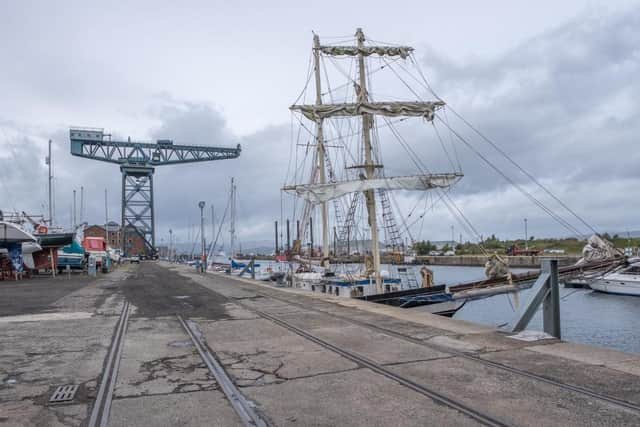Scottish town with links to slave trade could become site of National Museum of Human Rights
The ambitious proposals for disused sugar sheds in Greenock, Inverclyde, were put forward by MSP Stuart McMillan.
He wants the 134-year-old sheds on the waterfront at the James Watt Dock site to be used to educate people about Scotland's involvement in the transatlantic slave trade - which had links to Greenock through the sugar and tobacco industries.
Advertisement
Hide AdAdvertisement
Hide AdMr McMillan wrote a letter to fellow Nat, first minister Nicola Sturgeon, saying the museum would not only be a place for Scots to learn about their past, but for visitors on cruise ships to visit as well.


The sheds, built in 1886, are protected with category A status, and are the largest surviving cast iron and brick buildings in the country.
Mr McMillan said: "For too long we have cherry-picked parts of our history that don't demonstrate the full extent of our nation's involvement in the slave trade or the Empire.
"Greenock's historical links as well as the use of a building involved in the sugar trade would be an ideal location for a museum giving a fuller account of our history - particularly the darker aspects that too many of us know little about.
"The debate has started about how Scotland owns and addresses its past.
"The educational benefits of a Museum of Human Rights would provide an exceptional opportunity for all of Scotland to visit and learn, in addition to the many thousands who visit the area annually from the cruise ships that dock locally.
"There have been many suggestions over the years about how the sheds should be used but the current debate provides the perfect opportunity for this historic building to play its part.
"Inverclyde's history is Scotland's history, for good and bad.”
A message from the Editor
Advertisement
Hide AdAdvertisement
Hide AdThank you for reading this story on our website. While I have your attention, I also have an important request to make of you.
With the coronavirus lockdown having a major impact on many of our advertisers - and consequently the revenue we receive - we are more reliant than ever on you taking out a digital subscription.
Subscribe to scotsman.com and enjoy unlimited access to Scottish news and information online and on our app. With a digital subscription, you can read more than 5 articles, see fewer ads, enjoy faster load times, and get access to exclusive newsletters and content. Visit https://www.scotsman.com/subscriptions now to sign up.
Our journalism costs money and we rely on advertising, print and digital revenues to help to support them. By supporting us, we are able to support you in providing trusted, fact-checked content for this website.
Joy Yates
Editorial Director
Comments
Want to join the conversation? Please or to comment on this article.